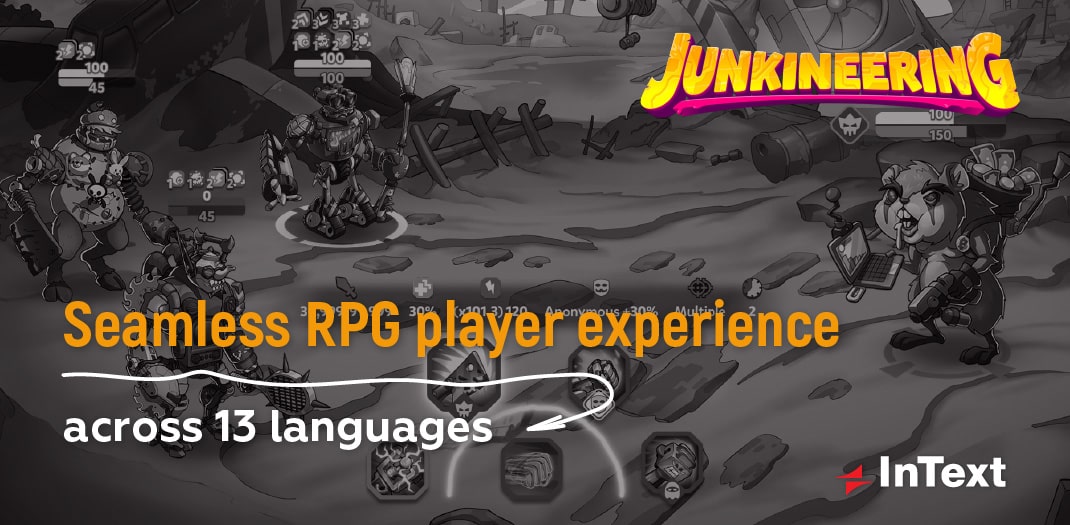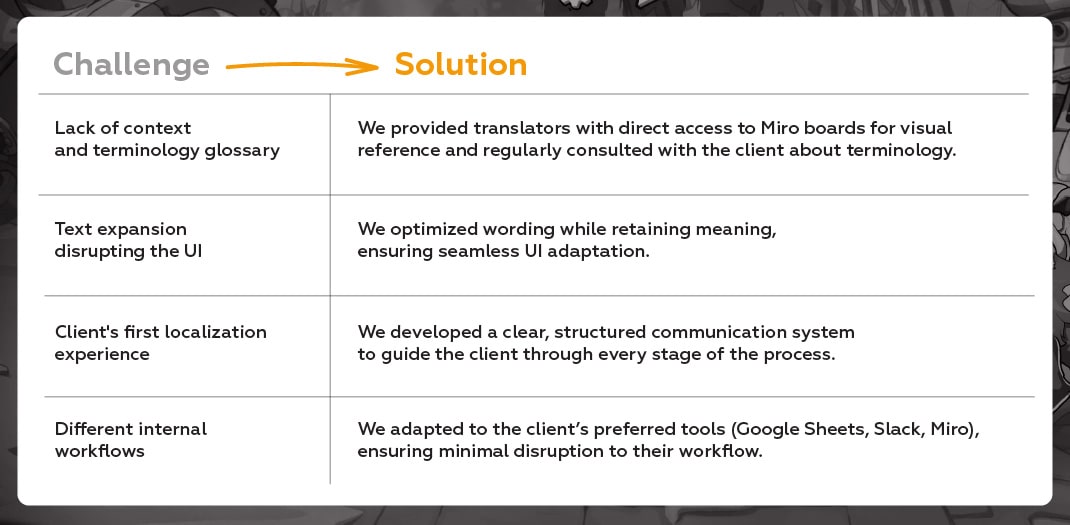
This article was originally published on multilingual.com.

Every ambitious game project faces challenges. The key to success is identifying and overcoming them before they disrupt the player experience.
Expanding into international markets is a major milestone for any game studio, and localization plays a crucial role in this process. Many game developers misinterpret localization as merely translating text; in reality, it involves preserving the essence of the game and ensuring it resonates with players across different cultures. Poor localization can alienate players, decrease engagement, and even damage a game’s reputation. That’s why a well-executed localization strategy is crucial for global success.
InText specializes in navigating localization challenges to ensure games resonate with players worldwide while maintaining their integrity. One of our recent projects — localizing Junkineering (available on Google Play and App Store) by Coleplay into 13 languages — provided valuable insights into managing the localization demands of fast-paced, competitive games. In this article, we share key challenges and solutions based on our experience, offering takeaways for developers and localization professionals alike.
Drawing from our extensive portfolio, we’ve identified several recurring challenges in game localization:
Inconsistent terminology and lack of a glossary
Limited context provided to translators
Underestimation of time and budget for revisions
Text length issues disrupting UI and design
Inefficient communication among all parties involved
The Junkineering project presented some of these challenges. But thanks to effective collaboration with the client’s development team and a strategic approach, we turned potential roadblocks into opportunities for refinement and efficiency.
Role-Playing Games (RPG) are among the most demanding titles to localize. With real-time fast-paced gameplay, strategic depth, and unique in-game terminology, the bar for accuracy and consistency is high. Junkineering exemplifies these challenges, featuring a rich narrative, distinct character identities, expansive worlds, and a cleverly engineered UI. Localizations had to ensure clarity and precision while preserving the competitive nature of the game and its immersive experience.
Our approach ensured that Junkineering retained its tactical depth across all 13 languages while providing a seamless player experience.
To optimize costs, our client initially translated the source text into English. Our expert editors then refined the translation to ensure clarity, consistency, and accuracy. We aligned terminology with the game’s context, securing client approval to prevent misunderstandings. This polished source text then became the foundation for high-quality localization into multiple languages.
Context is everything in game localization. To provide translators with an immersive understanding, the client linked all text elements to a Miro board containing game assets, including character designs, UI components, tutorials, and in-game screenshots. This visual aid ensured translators understood references, humor, and cultural nuances essential for delivering an authentic player experience.
To maintain alignment throughout the localization process, we established a real-time collaboration system:
Once translations were complete, integrating them presented a new challenge due to text expansion. Some of the English-language texts were longer after proofreading, affecting UI layouts. Other non-Asian languages mirrored this issue. As we have discussed on our blog, text typically contracts when translating from English into Asian languages.
To maintain design integrity, we optimized text length while preserving meaning. This ensured smooth integration into the UI without sacrificing readability or impact.

Our experience with Junkineering reinforced several key best practices:
Localization can make or break your game’s success in international markets. With InText, you gain a trusted partner that preserves your game’s essence while ensuring global accessibility. Projects like Junkineering highlight the importance of thoughtful planning, agile communication, and attention to cultural nuance.
We extend our thanks to the Junkineering team and their CEO, Yaroslav Popov, for their trust and collaboration. It was a rewarding partnership, and we wish them continued success with their global release.
If you’re looking to bring your game to new audiences without compromising on quality or the player experience, we’re here to help. Let’s make your game a global success — without losing what makes it special.